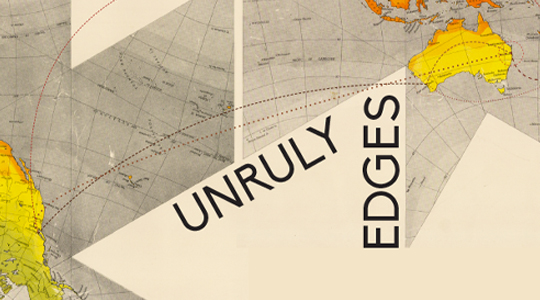Studio 3
Unruly Edges
Virginia Mannering

Studio Description
In this studio, students will explore the relationships that exist between architecture and its context. Here, our studies will extend beyond the usual readings of site (the current and the physical, for example) to also look at less tangible but equally present and potent forces (historical, political and cultural etc) as drivers for design. Idiosyncratic buildings and rich readings of place will be the fundamental outcomes.
Students in this studio will locate their project in one of four sites: Auckland, Brisbane, Perth or Vancouver. These are cities that might have once been considered the ‘unruly edges’ (Penelope Edmonds, p.5) of the British Empire, but are now regarded as “Beta Cities” in the post-global order. The studio challenges established discourse around the generic nature of global cities, but also admits the difficulty of establishing identity in urban territories that have erased or obscured their own histories, and in cultural frames that resist immediate understanding.
Students will produce a hybrid museum/archive and a method for reading their chosen city through close scalar research methodologies and investigations. The semester will require both the development and refinement of a new kind of urban museum, as well as ongoing spatial research conducted through mapping, forensic reconstructions, cataloguing and narrative production. Students will be encouraged to incorporate material from outside canonical architectural resources and methods e.g. film, literature, landscape art, archaeology and language studies.
Studio Outcomes
The studio asks students to think of the cities in which we are working as a dynamic but fragile and contested spaces. We will analyse their identities, reflecting this through unique and imaginative architectural propositions. To do this we will engage in creative and critical thinking and careful and thorough research.
Throughout semester there will be an emphasis on:
- Mapping and ‘forensic’ constructions
- Research and research methods
- Scaled esquisses and projects, moving from the XL (urban scale) to the S (the architectural detail)
- An interest in interdisciplinary approaches e.g exploring film, literature, landscape art, archaeology and language studies.
Studios will consist of a mixture of pin ups and desk crits, with some workshops at the MSD and elsewhere in Melbourne.
Studio Leader
Virginia Mannering is a designer, researcher and award-winning architectural writer. She works in small practice on residential, educational, and exhibition projects, while her design research focusses on historical urbanism, explorations of site and materiality, and feminist architecture. She has taught extensively, across studio, construction, theory and art history units.
Reading & Reference
Auckland Council Archives - http://www.aucklandcity.govt.nz/dbtw-wpd/CityArchives/searchkeyword.htm
State Library of Queensland - http://www.slq.qld.gov.au/
State Records Office of Western Australia - http://www.sro.wa.gov.au/archive-collection/collection/maps-online
Vancouver City Archives - http://vancouver.ca/your-government/city-of-vancouver-archives.aspx
Briggs, Asa Victorian cities ([New ed.]). Harmondsworth Penguin, 1968.
Bunbury, Alisa, Bunbury, Alisa, (editor.) and National Gallery of Victoria (host institution.) This wondrous land : colonial art on paper (1st ed). Melbourne National Gallery of Victoria, 2011.
Desimini, Jil and Waldheim, Charles, (author.) Cartographic grounds : projecting the landscape imaginary. New York Princeton Architectural Press, 2016.
Edmonds, Penelope and ProQuest (Firm) Urbanizing frontiers : Indigenous peoples and settlers in 19th-century Pacific Rim cities. UBC Press, Vancouver, 2010.
Raisz, Erwin Principles of cartography. McGraw-Hill, New York, 1962.
Schrader, Ben The big smoke : New Zealand cities 1840-1920. Wellington, New Zealand Bridget Williams Books, 2016.
ST1/04 Monday 5:15-8:15PM, MSD Room 244
ST2/04 Thursday 12-3PM, MSD Room 141